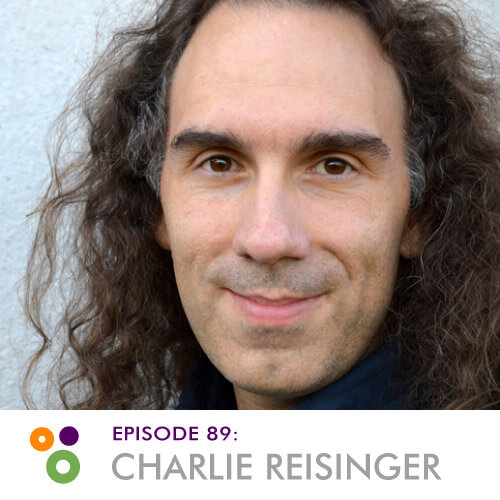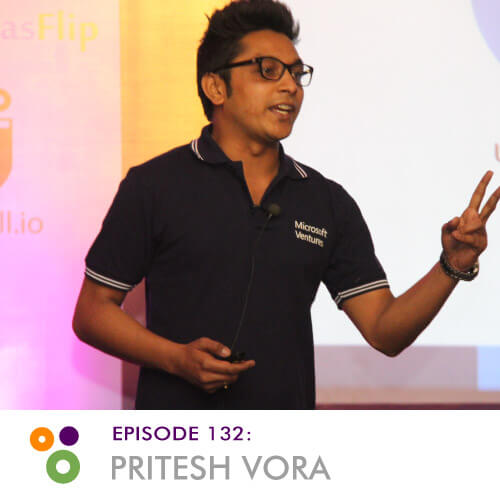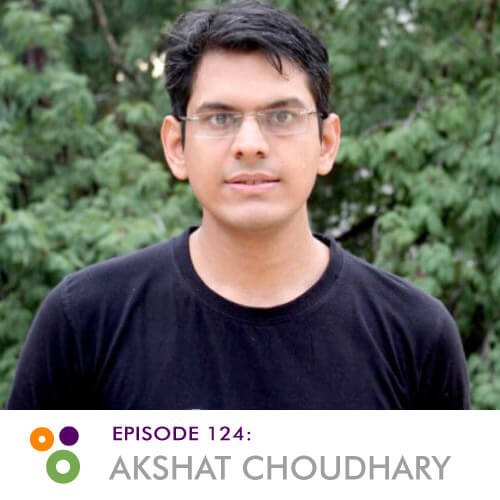Episode 120 – Shannon Shaffer

Podcast: Play in new window | Download
Subscribe: RSS
Introducing Shannon Shaffer
Shannon is a mom, travel enthusiast, book lover, and doer of WordPress stuff. A self-proclaimed geek, Shannon owns Purple Finch studios, a small digital agency located in Pennsylvania.
Show Notes
Website | Purple Finch Studios
Instagram | ShannonTShaffer
Twitter | @shannontshaffer
Preferred Pronouns | She/Her
Episode Transcript
Tara: This is Hallway Chats, where we meet people who use WordPress.
Liam: We ask questions and our guests share their stories, ideas, and perspectives.
Tara: And now the conversation begins. This is Episode 120.
Tara: Welcome to Hallway Chats. I’m Tara Claeys.
Liam: And I’m Liam Dempsey. Today we’re joined by Shannon Shaffer. Shannon is a mom, travel enthusiast, book lover, and doer of WordPress stuff. A self-proclaimed geek, Shannon owns purple Finch studios, a small digital agency located in Pennsylvania. Welcome, Shannon.
Shannon: Hi Tara and Liam. Thanks for having me.
Tara: We’re really glad to have you here. Shannon. Thanks for joining us. Can you tell everyone a little bit more about yourself?
Shannon: Sure. I’m Shannon Shaffer and I live in a town in Wyoming called Wyomissing, Pennsylvania. I’ve lived all of my 44 years here in Pennsylvania, so I’m kind of a home buddy. I love my state. I am a reformed blogger as I like to call it. About 13 years ago, I started a blog that changed my life. I was in corporate finance for a long time and decided one day to start writing on the internet.
All these years later, I’ve been in the WordPress space and it literally has taken me from being, like I like to call it, corporate soldier going into work from nine to five every day to being someone who lives the best lifestyle that I can imagine, being able to work from anywhere, and have a fantastic team that’s distributed throughout the world. I have really no complaints.
Tara: That’s great. What a great story. What is the blog that you started? What started this path I guess?
Shannon: I was working in corporate finance, and I went online and I read this blog and I’m like, “I can do this.” And so I started writing about saving money. I had a degree in finance. I started on blogger. Then I think it was around late 2006, maybe early 2007 I found WordPress and I just started writing my little blog and found Twitter, and somehow found about 100 million website views a year. So it grew…
Tara: 100 million?
Shannon: Yes. It grew from just me to a team, to a network of blogs, which I then in 2014 sold to a media company.
Tara: Wow. Amazing. You built something with that many views without having a background in blogging and online digital marketing.
Shannon: And at that time, if you really think about it, nobody really had a background in digital marketing. When I started there was no Twitter. Facebook was just for colleges. Basically, people ask what I do, and Am I a designer, am I a developer and I just say, “No, I’m a doer of WordPress stuff.” So it’s kind of a title that’s funny because I don’t have a technical background. But in the process of blogging and growing my team and growing my websites, you learn these things. I just learned as I went, learned how to code. You don’t want me to code anything because I’m the worst developer on the planet. But one thing that I did learn was how to convert people on a website.
Tara: Wow. I think Liam and I are still both a little bit stuck on the 100 million views number. Is that on one website or is that on all the websites?
Shannon: No, one website.
Tara: Oh, my goodness gracious. I want to just ask you so many questions about that. Was there SEO involved in that or was it organically grown?
Shannon: So funny because I had no idea what SEO was at the time. I remember one day somebody saying, “Hey, you’re outranking Huggies when I searched for Huggies discounts on Google.” I was like, “I don’t really know what that means but that’s awesome.” So it was by accident. Really it was an accident. Just writing and you learn to just kind of go with the flow. Eventually I learned what SEO was and I learned what keywords were in metadata and alt tags and all that. But not on purpose. It was all by accident.
Tara: Fascinating.
Shannon: It was a different time then too.
Tara: Sure. But I imagine having that statistic, that fact about your experience must help you win a lot of business because people must just be like, “Oh, well, if she can do that, then she can do that to me.”
Shannon: I don’t use it. It’s not a statistic that I really use in my marketing today. My view…
Tara: Did you use it when you started?
Shannon: No, I didn’t, to be honest. I knew a lot of people locally. A lot of people followed my blog locally. So that’s probably how I got started, but not really using that statistic as a metric to say, “this is what I did.”Because honestly, I think that statistic, then and now are two different animals. To get traffic now is a lot harder than it was back then. I don’t typically use it, but it’s an interesting one to throw out for podcasts.
Liam: It’s a humble way to look at it. But even in 2007, 2008, 2009, 100 million? That’s a lot of legwork. That’s a lot of legwork to do that. That’s impressive. That’s very impressive. I have kind of a silliest question on this. You just started blogging and writing about personal finances and presumably, the focus shifted a little bit if you’re outranking Huggies. Maybe you are writing about how to save and Huggies or something like that.
Shannon: It was specifically for moms because my goal was I was working this corporate job that was sucking my soul out of me and taking you away from my child, and so I wanted to figure out how I could save money and be home with my kid and give up a six-figure job to be home. So I just started writing about saving money geared towards moms. It was stay at home mom was my target. So what did we want to save money on? Huggies, food and all things. That’s kind of how it evolved.
Over time, you just being in the trenches, you learn all these things that are out there. My MBA is in marketing, and so the marketing part, the finance part all kind of came together. I never intended. It was just to be a small income replacement for while my son was in elementary school, and then I was going to go back to work.
I learned so much during those years that when I sold my business I know what it’s like to be an entrepreneur who starts something and you’re so involved with it and you get to a point where you can no longer handle what you have, and the success of your business is riding on your digital presence. That’s kind of where my business now came to life from being able to relate to that. I understand the business part of it being that I was there, being an entrepreneur, but I also understand the technical part of it.
So when I started this business, the first thing that I did was as soon as I had enough money, I hired a developer who knew way more than me. He’s been with me for four years. We have 10 people on our team now. The business kind of was created from a need that I had all those years ago. It’s really that, being able to understand and empathize with the business owner, but also be able to have conversation with your developer and kind of bridge. I think that’s what’s really giving me unique advantage. When you’re after that 100 million comes into play, it really doesn’t. It just being able to relate so. It’s a really unique story in the WordPress space.
Tara: It is. How did it go then leaving that job and saving up money to hire a developer? How did you find a developer and grow your team? I’m always interested in this question because I have a small agency as well with a couple of part-time people and it was a huge, huge mental shift to hire somebody. I don’t have a full-time staff but to have people’s livelihood rely on you or to make a payroll or to just shift that way of thinking to having people that are responsible to you and that you’re responsible for. Talk a little bit about that, about being a business owner.
Shannon: I think for me when I came into this agency life, it was a little bit different because I had sold the business or a good deal of cash and I had that security behind me. But the first employee that I had with my blogging business was my sister. Our contract was done in a Starbucks on a napkin. In fact, she just texted it to me laughing. The only promise I made to her was that there would be hot coffee every day because that’s the only thing that I knew I could definitely do. And she took a big risk when she left her job
One of the biggest things I think is that we often get like afraid to make a commitment to pay people. But I think making that commitment to pay people does two things. One, you know that you have a payroll to make and it motivates you like hell. It just makes you want to do better for the people that work for you. And two, I think it gives us the resources to get the work done while we think about growing our business. Because a lot of times when we’re doing everything ourselves, we’re so consumed with the deliverable for the client that we can’t think about running our business. I often see what happens with people is they invest in their first employee, and they experience this growth that they couldn’t have happened with just themselves. It’s a scary thing, but it’s a great thing.
When I hired my developer, my business could not afford him most definitely. But if I didn’t hire him, I wouldn’t have gotten here. It’s kind of cart horse, horse cart. If you have to do one without the other – I don’t know that you can get anywhere. So you can only go so far. It’s a big leap but you don’t know until you try, right?
Tara: Yeah. Can you talk about your WordPress community? Do you have one there or you kind of came in this as a blogger? I’ve seen you at some WordPress events recently so I know that you do involve yourself with it. Tell us a little bit about that path.
Shannon: I have been a really big community member. Like Terrible. Early on, I participated in the WordPress community and probably for good six years just disappeared. To be honest and forthcoming because I think this is a safe space, I have anxiety things that really made it tough for me to be out there. So one of my goals and one of the reasons that I am here is because I feel like getting past some of those anxiety things I think that WordPress community has grown that we are allowed to say the things that are maybe not our best qualities. I think the WordPress community has given us a space to talk about those things.
I am one of the few people who use the quiet place spaces as WordCamps, so on comp place. At WordCamp US, I spent some time each day in those spaces recharging, regrouping group. Conversations are a lot for me to deal with. I haven’t been the greatest in the community but I’m hoping to change that. And I’m hoping also by talking about it that other people who may struggle with social anxiety can find their voice as well.
Liam: Thank you. Thank you for sharing that, for that trust in us and our show. Tara and I are both grateful for that. I guess I just kind of add or maybe think about, you know, I’m not the greatest community member is your greatness comes in all shapes and forms. The most visible and the most outspoken doesn’t necessarily mean overall greatest. There’s a lot of people who Tara and I know who hang out in the quiet spaces and contribute to the community in ways that are enormously great. So I invite you to consider yourself one of the greatest if you’d like, that you don’t have to denigrate yourself there.
Shannon: Well, I appreciate that. It’s just sometimes it’s hard. I’m going to make a complete effort. I have a kiddo now who’s an adult so I have time and energy. When I started in the WordPress community, he was just a five-year-old. Now he is a an adult, I feel like I have that room and space to be able to do that, to be able to take like an extra day on the end of travel, to recharge and regroup and do those things.
I hope that in 2020 that by getting out there and being able to tell my story and give people encouragement that, number one, not coming from a technical background that there’s a place for you in the WordPress community, and also for people who may struggle with anxiety and depression and all those things. That this is a judgment-free zone, and nobody’s going to judge you for saying that and maybe needing to step back and recharge and regroup. I think the WordPress community has done a great job in the last few years from when I came previously to recognizing that there are all different types of humans, and that’s amazing.
Tara: It is a great thing about the WordPress community. And thank you for sharing that with us here, Shannon. I’m grateful that you’re here with us. I can relate to having your children be grown and that sort of changes your participation level and for some reason, that just kind of clears up some space, just in your way of thinking about your own life and your own time. I hope you enjoy that phase as hard as it can be when your kids grow.
Shannon: There may be some tears this spring and summer but yeah, it’s a lovely transition, right?
Tara: It is. I can share that with you with a hug next time we see each other because that’s hard. But you can look at it as…there’s this saying that I keep seeing out there. I just saw it on Twitter yesterday from somebody else. But the idea of “I get to” instead of “I have to.” Like, I get to go to this conference, not that I have to go. Then you can tag on, like you said, tag on some extra time or view it as opportunities rather than obligations.
Shannon: Absolutely.
Tara: Great. Thanks for sharing that. I’m going to ask you about success. I think we started off talking about this amazing number and selling a business and running a business but how do you define success for yourself personally professionally or a combination of the two?
Shannon: First of all, when I hear the word success, it actually kind of gives me a little bit of anxiety because I think there are so many metrics out there that we use as a society. For me, all those metrics mean nothing. The success for me in my life is being able to participate and be where I want to be. It doesn’t have anything to do with money. It’s just being able to have the time for my family and for my friends and to do all the things.
One of the most successful things in my life is that I’ve been able to take my parents, my mom and my dad who’s no longer with us, on vacations and my son and spend weeks of time with them without looking at a phone or computer or worrying about work. To me, that is the most successful thing about my life is being able to take the time for my family. All of that is due to what I do as a job, I believe, and making that a priority. It’s an odd measure for some people because I sold a company and done well financially and all those things, but I don’t think that they really, really matter at the end of the day.
Tara: Yeah, I agree. We actually haven’t had anybody come out and say that it’s all about the money that they make. Certainly providing for your family is important and people do talk about that, but I think we hear a lot about flexibility and…
Shannon: I think it’s very common in this day.
Tara: It is.
Shannon: I think in [inaudible 00:17:46] of the WordPress community, in corporate spaces and things like that, you will hear lots more about title and money and privilege and all those things. Don’t get me started on privilege. But those are all things that people look at.
Liam: We can go there.
Shannon: Do you really want to do that?
Liam: For the record, you’ll open the door.
Shannon: I will. No one can see me, but if you don’t know me already, I am a black woman, so diversity and inclusion and privilege are topics that I’m extremely passionate about. If I can someday get over this social anxiety thing, I would love to talk about those things in a public forum because I think that they are hugely important.
Another reason quite frankly that I want to start showing up more is because I think it’s super important for young women, specifically young minority women to see the people who look like them who have some level of success and also not just success but in charge running companies, doing things other than traditional jobs that women are in. It’s one of my, one of the things that’s near and dear to me is to make sure that young women can see other women who are stepping outside of the boxes that sometimes society puts us into.
Liam: Well, I’m excited to hear you present on that. I think you’re absolutely right that certainly the WordPress community can do more and can do better with people of color and women of color. We’ve done a fantastic job around sexual orientation and gender identity. We’re not bad and race and culture, but I don’t think we’re as strong there.
Within the US, some of that might be more a reflection of our nation’s history than a reflection of the WordPress community. So I think, yeah, I’d love to find a way to help you use the platform of your success to assist our wider community on. Sure, the focus may be on people of color but certainly, people who are not of color, white people will benefit from your example and from your leadership. So thank you.
I know that’s not an easy road to walk through. There are great costs to saying things, to doing things, to be the one that up the pulpit. And I mean that in a supportive way. I don’t mean you’re a bully pulpit or anything like that. So thank you. Thank you.
Shannon: I think one of the biggest issues is that when we leave inclusion and diversity to people who, and Liam, no offense, but when we leave inclusion and diversity to typically white men, and typically middle-aged white men, they do inclusion and diversity and the only way that they know how. And I think sometimes the mark is significantly missed. I think the intentions are good. And in full disclosure, I am married to a wonderful middle-aged white man for 20 years. I just think that there’s a lack of foresight that you cannot have without experiencing some of the things. That’s why I think it’s important for more people of color and more women.
Also, when I think about inclusion, people with disabilities and things to step up and be part of the planning process, because I think that’s the only true way that we check all those boxes when it comes to diversity and inclusion. Sometimes that’s a mouthful to say.
Liam: It totally is. And the bigger the audience, the harder it is to say.
Shannon: I think that’s really important. Hopefully, that’s part of the future is that instead of trying to figure out of a room full of people who have never experienced try to figure out the things that would make these people feel included, let’s have those people in the room. That’s the conversation that I would like to see from the beginning of planning of events and things is let’s make sure the right people are in the room and included and heard not just in the room for these conversations.
Tara: I think that’s true. It’s also really apparent at conferences that the representation of minorities is very low. And I don’t know what comes first. Think often about the schools and education and kids being encouraged to pursue tech and the drive toward that and where’s the focus there. There are lots of girls, Girls Who Code and that type of thing trying to get more women involved. But I think I’d like to see the population shift. And so where does that start? How do you shift that?
Shannon: I had an interesting conversation at WordCamp US. I was just standing outside and a random person, a random man that I never met, we just started having a really good conversation. We’re about 45 minutes into the conversation and it’s like, “Can I ask your question.” I’m like, “What did I say or do?” And he’s like, you know, he said, “I have been trying really hard to bring in women and minorities into our group.” He said, “We’re really struggling to get them to apply.” I asked him a question, I said, “Do you have a website?” I said, “Do you have your leadership team on the website.” He’s like, “Yeah.” And I said, “Can I see them?”
I opened up his website, I scrolled and I said, “This is your problem.” And he said, “I don’t get it.” He goes, “We’re all very inclusive. We want people.” I said that see, your leadership team tells me that you’re not inclusive because your leadership team is all white men.” And he said, “Well, but we have female employees so we have women.” I said, “But your leadership team is men.”
It took him a few minutes to realize that as a minority, I want to see if there’s an opportunity for me in the organization. And when you have no one in your leadership, that looks like me or is a woman or is a minority, it tells me that while you may want to be inclusive, that truly you only have this leadership team of white men making decisions. I think it has to really start there.
And he was like, “I’ve asked a lot of people this question,” and he goes, “Sometimes they get angry. Sometimes they give me some crazy answer.” He said, “This is probably the most insightful.” I said, “Your number one task is to go recruit somebody to be on your leadership team who doesn’t have glasses or beard.” And he’s like, “Okay, I’m going to do that.” So random stranger. If we can have conversations like that with random strangers, I think it could be amazing.”
Tara: Liam don’t have glasses but there’s a beard.
Shannon: Again, my husband has a beard and glasses.
Liam: But your point is a good one. Just going back to what you said earlier is that all of us can only speak to our own experience. We might be able to empathize with the experience of those not like us, but we don’t really know it. And even if they share it with us, whether it’s in a book or a blog post or an article or even a really lengthy conversation, none of that is 40 years of experience that that person has living as whoever they are.
I think it’s hard to minimize the value of that and how to minimize just how different people really are. And doesn’t mean that we can’t all get along and it’ll be done a flippin way. But that we can’t come together and work together and do amazing things together. But we’re very different people with very different experiences and that’s going to affect how we do things. That’s great. Thank you for sharing. Thank you.
Tara: Yeah, thanks. That was a good conversation.
Shannon: Sorry, no intention of going there.
Liam: Oh, well, no, no, it’s an important topic.
Tara: It really is. I don’t think we talk about it too much really. I think it’s important. And the more you talk about it, the more ideas you get on how to move forward from it. So thanks. I’m going to ask you another question. Oh, Liam, you were going to ask a question. Go ahead, Liam.
Liam: I was going to ask the question that you were going to ask. So either way, all right. I want to ask you about advice. What advice have you been given or received or what’s the best advice that you’ve been given, received or read and successfully implemented in your life?
Shannon: When I was in my early 20s, I worked for a woman who was an entrepreneur and I just watched her, she was amazing, incredible, and I said, “How have you done this? What is your secret?” And the best advice, and I’ve been given a lot over the years, she said to me, “Simply take time for yourself every single day.” It’s been the most incredible thing. That’s how I became a lover of books. I read 75 to 100 books a year, and it is my time for myself.
Every single day, no matter what is going on, whether it’s five minutes, 15 minutes, 30 minutes, take that time that is only for you. I think it helps us stay grounded in who we are and remember that we have to take care of ourselves before we can take care of anybody else. I think doing that every day for yourself, you will find that when you prioritize your wellbeing that you are able to accomplish so much more. That was it from her and she was extremely successful.
You can do that so many different ways. Some people it’s the gym, some people…I love reading and gaining knowledge. And it’s only for me, not for anybody else. It has to be something that nobody else benefits. It can’t be your kids, can’t be your husband, your wife. It has to be just you. If you can find a way to do that every day, I think it helps. It can help you in so many different ways.
Tara: Do you set aside the same time every day or do you grab it when you can? How does that work?
Shannon: No, I typically try to schedule it in my plan for the day because obviously, I have appointments and things like that. But I typically try to schedule it. In fact, when we’re done here. I’m going to go and grab a coffee and it’ll be my time to read.
Tara: Nonfiction, fiction, a combination of the two?
Shannon: I try to mix it up.
Tara: All right. What’s the best book you read this year?
Shannon: I would have to say that…I read so many and I like so many. I can’t give you one.
Tara: All right.
Liam: I was going to reduce the pressure. I thought that was a huge pressure question. What are some of your favorites? Sorry, Tara.
Tara: No, it’s okay. I knew that would be very tough to just pick one.
Shannon: Yeah, picking just one. I have so many favorites that…this is like a prank. Nobody told me that I was going to have to answer this.
Tara: No, sorry to throw that at you. If you’d ask me the same I wouldn’t have answered. I don’t read 75 books a year but I can’t answer that either. So good job. Are you on Goodreads?
Shannon: I just deleted my account.
Tara: So I can’t go see what your favorites are there either?
Shannon: Yeah. I just deleted because I was getting really competitive. I told you up front that I’m a geek. So I just made a decision to delete my account.
Tara: Oh my gosh, that’s how I remember what I read. That’s the only way I can remember because I will forget.
Shannon: The people that we read about the same amount of books as I do, we’re always talking about what we read. And I’m just looking to get books for Christmas and I went through Goodreads to see what [inaudible 00:31:25] that I could buy.
Tara: Good idea.
Shannon: So maybe I’ll be back, but I just needed to stop obsessing about reading.
Tara: Interesting. Well, you have to keep a list then, like a manual list so you remember for yourself, right?
Shannon: Absolutely.
Tara: Well, we can now go down this rabbit hole of books for a while, but we’re out of time, Shannon, and I’m sorry that we’re out of time. It’s been so great talking to you really appreciate your joining us here and putting yourself out there. So thanks for doing that too. Where can people find you online?
Shannon: You can find me on Twitter, @shannontshaffer and LinkedIn.
Tara: And your website?
Shannon: Oh, sure, my website, purplefinchstudios.com.
Tara: Great. Well, thanks so much. Look forward to seeing you in person sometime this year.
Shannon: All right. Thank you, guys.
Liam: Shannon, what a pleasure. Thanks for your time. Lovely meeting you.
Liam: Thanks for listening to the show. We sure hope you enjoyed it as much as we did.
Tara: If you like what we’re doing here – meeting new people in our WordPress community – we invite you to tell others about it. We’re on iTunes and at hallwaychats-staging.ulpgsyz6-liquidwebsites.com.
Liam: Better yet, ask your WordPress friends and colleagues to join us on the show. Encourage them to complete the “Be on the show” form on our site, to tell us about themselves.





